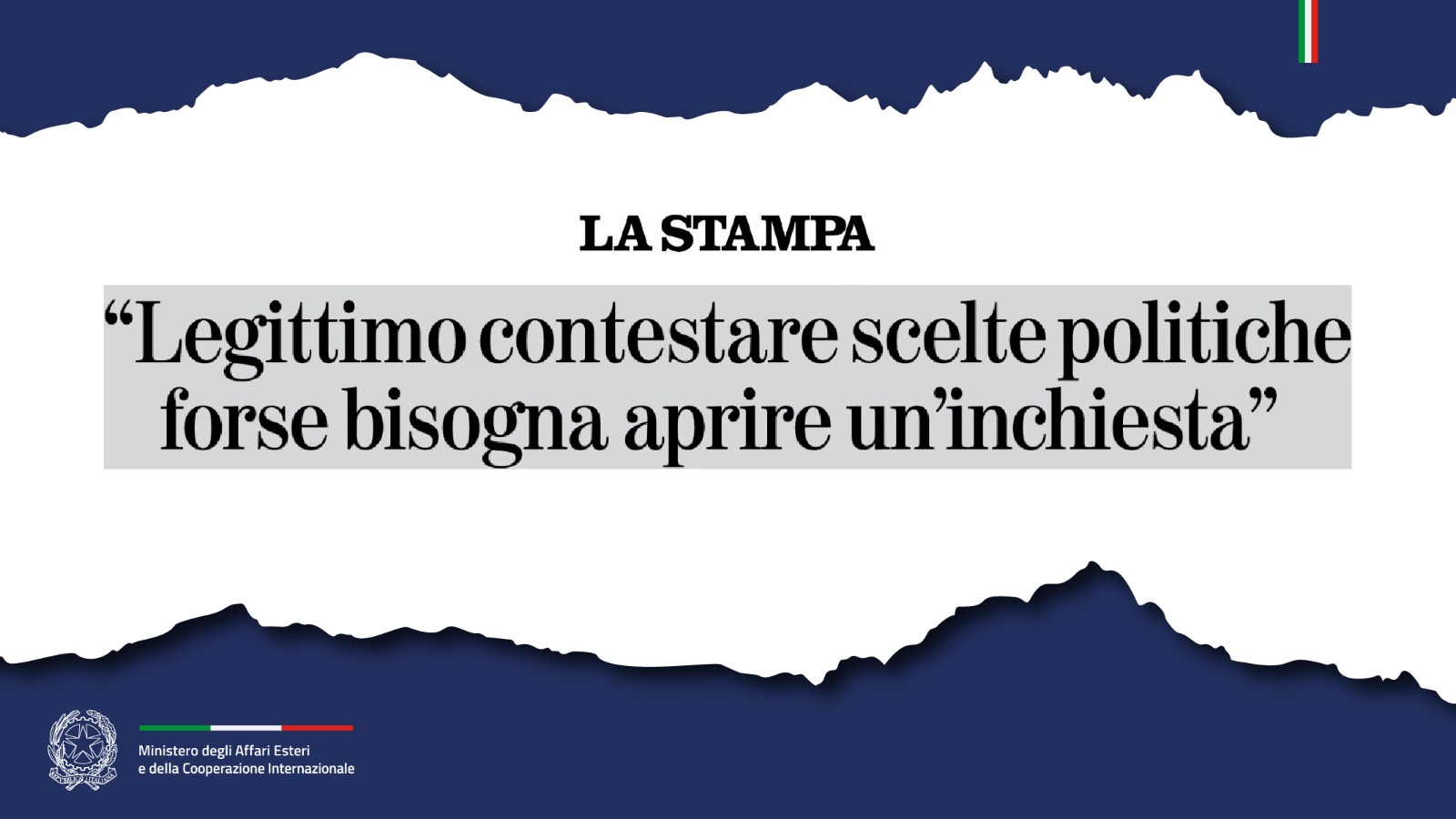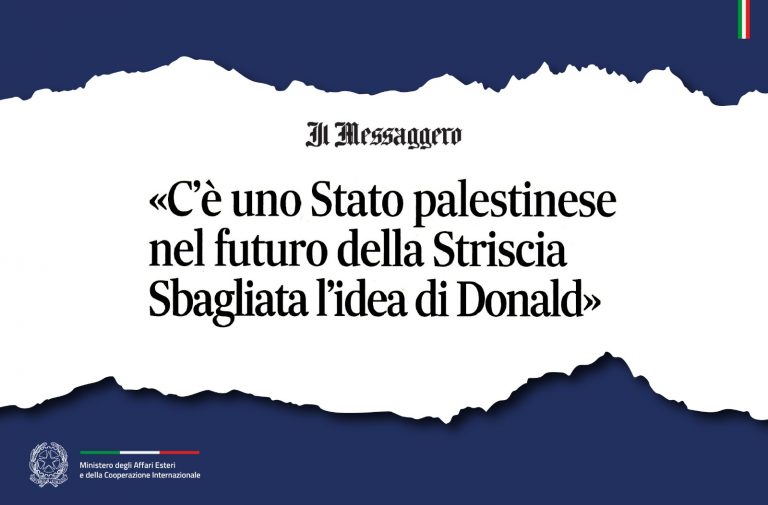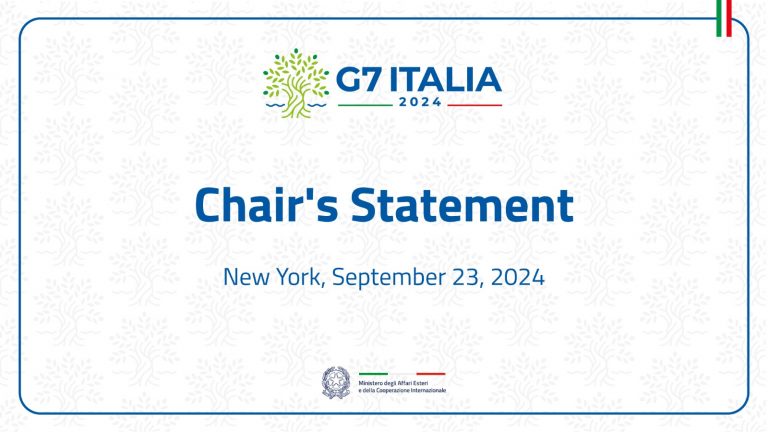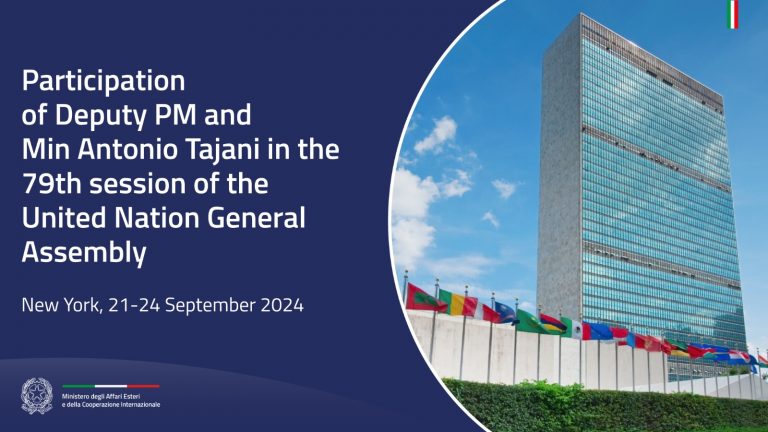The controversy surrounding the alleged investigation by the International Criminal Court (ICC) into the Italian government has reached Minister of Foreign Affairs Antonio Tajani in Israel, where he is on a mission for Food for Gaza. The news is soon denied, no proceedings have been brought for now, though a complaint has been filed. “They can submit as many reports as they like, it takes a lot of patience,” Tajani tells La Stampa, initially irritated to the point of retorting, “Perhaps an investigation should be opened into the ICC itself, to seek clarification on its actions.” Later in the evening, his tone softens, but the frustration remains. President Mattarella’s speech on Wednesday at the University of Marseille, warning against delegitimising international organisations, has certainly not gone unnoticed within the government. “The same applies to the ICC as it does to Europe: being pro-European doesn’t mean agreeing with everything,” Tajani continues. “Criticising does not mean opposing institutions. I also find it entirely legitimate to challenge certain actions of the Court, which has made political decisions. Institutions are made up of people, and if I point out, for example, that the UN was slow to act on Ukraine, I am not questioning the role of the United Nations.”
Tensions with The Hague are, in reality, just the tip of the iceberg in Italy’s relations with Donald Trump’s United States. Just yesterday, the President even threatened to prosecute ICC judges himself. And here, in Israel, those diplomatic nuances are under close scrutiny. Tajani has come to extend a hand to both sides of the conflict, while Washington openly supports only one and even entertains the idea of transferring Gaza’s Palestinian population to Egypt and Jordan. On this point, however, Italy’s Foreign Minister stands firm: “Our position is clear: the goal is and remains that of two States for two peoples. There are no other solutions, and our regional partners have reiterated this. Nothing can be done without the consent of the Palestinians, nor without the support of Cairo and Amman.” End of discussion. Tajani repeats this even after his Israeli counterpart, Gideon Sa’ar, standing beside him at a press conference, calmly declares that “Gaza has been a failed experiment, and at this stage, it has no future, it is time to explore new scenarios.” Tajani does not waver: “We are at the first stage of the truce; we need to move to the second and then the third before advancing towards peace. Today, we cannot recognise Palestine as a state because it does not yet exist, and doing so would only send a hostile message to Israel. But for us, the only viable solution remains that of two States for two peoples”
And so be it, even if back in Rome, his colleague Deputy Prime Minister Matteo Salvini is already planning a trip to Israel, perhaps to express his enthusiasm for the American President’s phantasmagorical plans. “Everyone is free to say what they like,” Tajani remarks curtly. Tajani also downplays Trump’s offensive against the ICC and his staunch defence of Prime Minister Benjamin Netanyahu, who is facing an international arrest warrant for war crimes. “The United States is not a member of the ICC, and neither is Israel. As for Italy, I’ve said a thousand times that pragmatism is needed. If Netanyahu were to visit Italy, how could we possibly arrest him? Can you imagine? Would we get into a gunfight with Mossad agents? And for what? Because three judges said so, one of whom went on to work in Lebanon and repeats that Israel is his enemy? Justice is a serious matter”. And in any case, I align with the French position: heads of State are not arrested. We must be realistic”.
And it is precisely realism that Tajani plans to discuss with his American counterpart, Marco Rubio, on 15 February in Munich during the G7 Foreign Ministers’ meeting. “We spoke a few days ago, in Spanish, over the phone. In Germany, we will begin clarifying how to proceed on Gaza, but also on Ukraine, starting with the direct contacts between Trump and Putin and the suspicions raised by Ukrainian President Zelensky. I had already sensed these concerns in recent weeks during my travels in the Balkans and Eastern Europe.” Ukraine and Gaza. With realism. Trump permitting.





